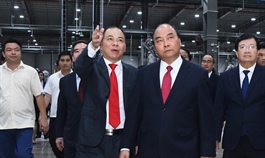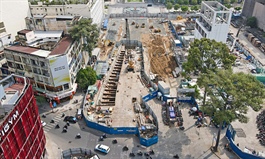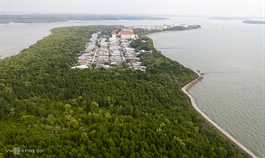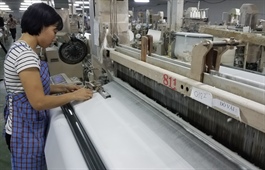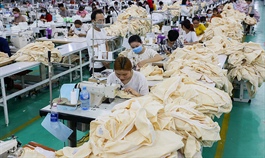Majority of family businesses in Vietnam lack digital capabilities
Majority of family businesses in Vietnam lack digital capabilities
The lack of the digital tools and capabilities that are needed for a rapidly changing world will present significant challenges to family businesses in protecting their legacy.
Only 30% of Vietnamese family businesses said they have strong digital capabilities, as compared to 38% globally, while a mere 9% say that their digital journey is complete.
The information was revealed in the 10th PwC Global Family Business Survey conducted from October 5 to December 11, 2020, of which the key decision-makers of 33 family businesses in Vietnam participated in an online interview.
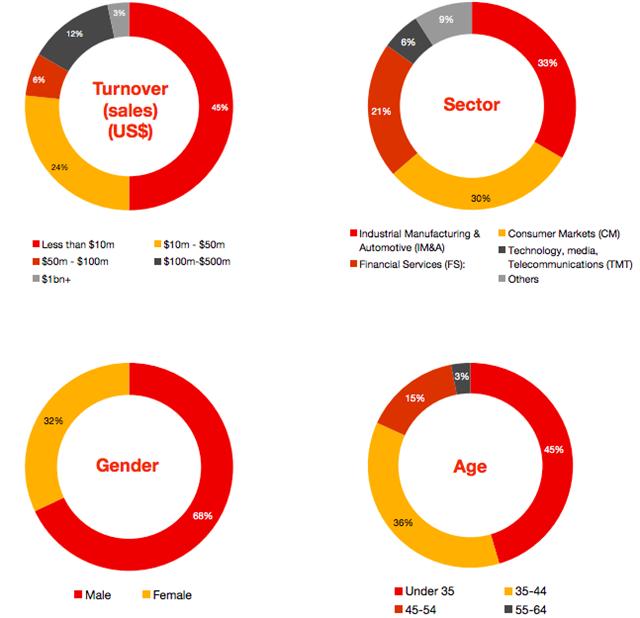
Vietnam respondent profile. Source: PwC
|
This slow progress could be tied to the reportedly high levels of resistance to embracing change within the company, as revealed by 67% of respondents, added the report, saying this is significantly higher than the perceived sentiment of regional peers, at 29%, and global peers, at 33%.
“The lack of the digital tools and capabilities that are needed for a rapidly changing world will present significant challenges to family businesses in protecting their legacy,” said Johnathan Ooi, private business services leader at PwC Vietnam.
“Moving faster along the digital journey will require more than just bridging the technology gap. Transformation must be a part of a cultural shift that is supported by highly engaged leaders, as well as a commitment to upskilling the workforce,” he added.
Optimistic outlook for next two years
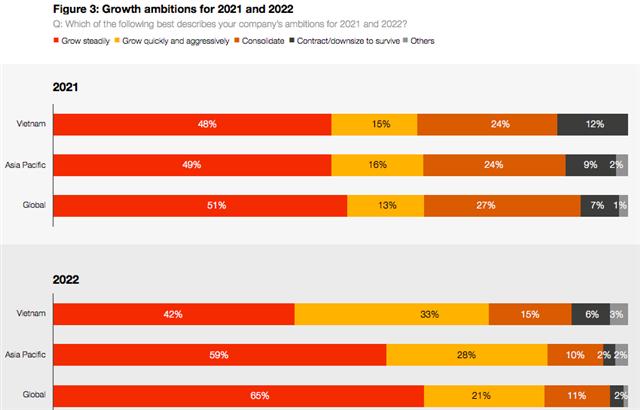
|
Meanwhile, the report also revealed 65% of the surveyed Vietnamese family business predict growth in 2021.
The view for 2022 is more positive, with three out of four respondents saying that they are optimistic about growth, and 33% anticipating that the growth will be “quick” and “aggressive” – higher than the regional and global responses, which stand at 28% and 21%, respectively.
In keeping with such growth aspirations, the findings also reveal that business expansion and technology adoption are the key priorities. 55% of the respondents confirmed a focus on bringing new products and services to the market, with 52% on the increasing use of new technology. Given that the global pandemic is marking permanent changes, the rethinking or adaptation of new business models is also top of mind for 52% of respondents.
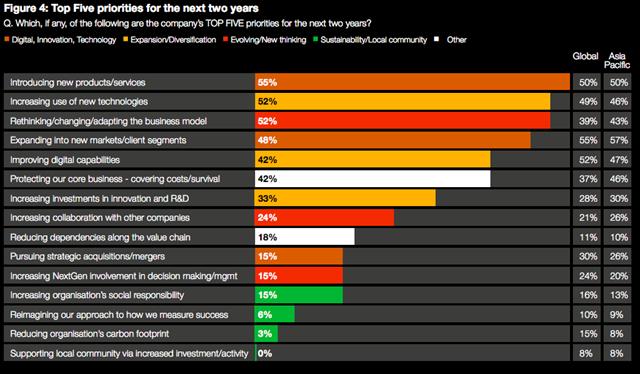
|
There are also apparent shifts towards business diversification and more externally managed structures for family businesses. Within five years, 45% of Vietnamese family businesses are aiming to become more diversified, highlighting the need for sustainable revenue streams for future disruptions. The current operating model – which centres on businesses that are owner-managed and family-managed – is expected to shift towards a “family-owned / externally-managed” or “externally-run” model, increasing from 12% to 60% over the next five years.
Over half (52%) of Vietnamese family businesses expect that the next generation will become majority shareholders within five years’ time. However, only 36% of respondents claim to have a formal succession plan in place.
“Family businesses are having to navigate a faster pace of change than ever before. An equal focus should be placed on strategic planning and succession planning. Making a head start in this area will therefore be helpful for the next generation. They will be equipped with the necessary tools to drive the business forward and in the right direction,” noted Ooi.
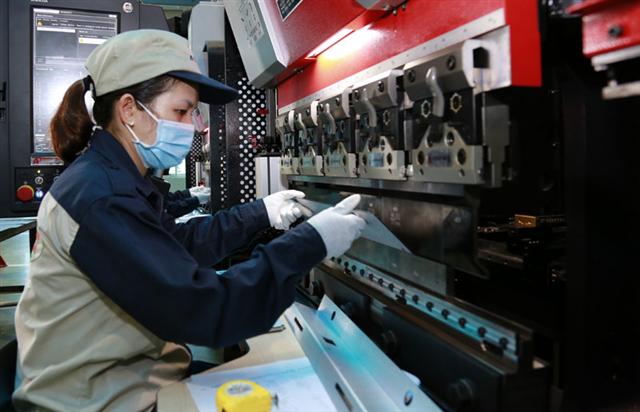
Production at A Chau Electricity in Hoa Lac hi-tech park. Photo: Thanh Hai
|
Greater focus is needed on EGS
The report also shed light on the growing need for Vietnamese family businesses to factor ESG (Environmental, Social, and Corporate Governance) credentials into their plans for securing their legacy.
In a year in which businesses have had to transform the ways they meet the needs of society and the environment, falling behind in terms of addressing sustainability and wider EGS issues could create a potential business risk, noted the report.
While the majority of Vietnamese family businesses (85%) are reportedly engaged in some form of social responsibility activities, issues relating to sustainability are currently far down the list of priorities. Only 21% of the surveyed family businesses feel that there is a responsibility to fight climate change, versus 50% in both Asia Pacific and globally.
“The world is changing, and so is the formula for lasting family business success. Tomorrow’s family businesses require a new approach to enhancing their legacy – one that is based on keeping ahead of digital transformation, with a greater focus on sustainability goals, and professional family governance,” Ooi commented.







